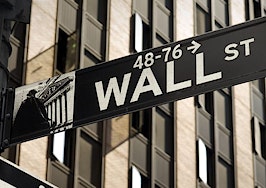On Monday, Feb. 5, Dow Jones dropped nearly 1,200 points, marking the worst plummet the stock has ever experienced in a single day.
As you may expect, this caused widespread panic among investors, and people are beginning to worry about the residual, indirect effects that the drop of a major stock can have in other industries.
In particular, there is much concern about the real estate market. Homeowners worry if they should sell, and buyers have a lingering fear that they may not be able to find a home to purchase.
Let’s take a look at how the stock market can impact the performance of the real estate industry.
Higher interest rates on loans
When people look to purchase a house, they often have to take out a loan to complete the process. Although down payments on homes are often approximately 10 percent of the property’s total value, things can get pricey in the $200,000-plus range.
Not many buyers have enough capital to purchase a home without external help, and sometimes would-be buyers also need help with the downpayment.
So they turn to lenders who can help them get started. As we all know, loans come with interest rates.
When the economy is bad, however, many lenders become concerned about just how reliable those seeking loans will be.
During times of economic downturn, banks and other lenders often increase their interest rates to accommodate the risk they are taking by loaning money during times of financial struggle.
By extension, real estate agents suffer from this, as well. With higher interest rates on loans, fewer people are able to purchase a house, and agents find themselves with less potential clients.
As a result, the industry becomes harshly competitive among agents, and the value of property begins to decline due to decreased demand.
However, interest rates on loans will begin to decrease as soon as the economy stabilizes and improves.
Larger down payments
Higher interest rates aren’t the only obstacle that homebuyers face. A dip in the economy often brings the need for buyers to put forth larger down payments.
As interest rates skyrocket, the idea of a loan becomes less and less enticing. Thus, many buyers may have no other option but to use their own assets.
However, the stock market comes into play once again during this situation. Many people who are looking to buy a home draw money from their investment portfolios to facilitate their down payment.
But a poorly performing economy can, unfortunately, lower the value of a variety of stocks, making it more difficult for the buyer to come up with the cash.
The combination of higher interest rates on loans, higher down payment requirements and less potential to adequately put forth a down payment can make buying a home very difficult when the stock market dips.
Lower consumer confidence
Consumer confidence is also a factor that plays a role in how the real estate market performs. Generally, people will only purchase high-cost, tangible assets when they are feeling secure about their economic future.
When things look rocky in terms of predicted finances, it can strongly deter buyers from purchasing homes. This, of course, results in less demand, which forces sellers to lower their prices.
This is also true for people who can afford the down payments on homes but have money tied up in portfolios. Losing money (even if it is only temporary) can be psychologically devastating for many people, and they may not be in the mindset to spend thousands on a down payment on a home.
Unfortunately, the remedy for this situation often requires the stock market to increase in value. If the downward trend continues, potential buyers may become even more demoralized.
Although Dow Jones dropped significantly during the beginning of February, the future isn’t bleak. There is still plenty of time for the market to recover before those involved in real estate need to worry.
Will Henry is a freelance content creator in Tampa, Florida. You can connect with him on LinkedIn.









